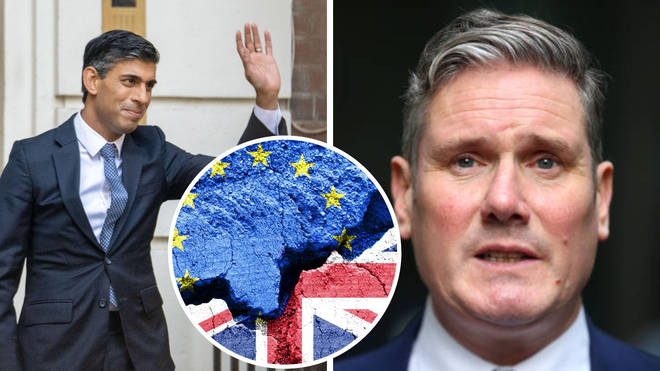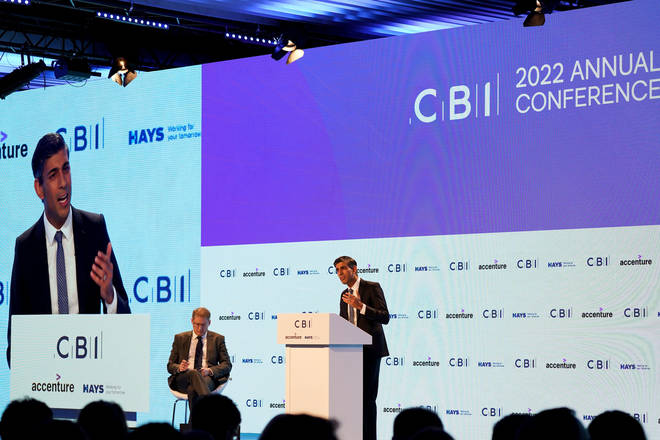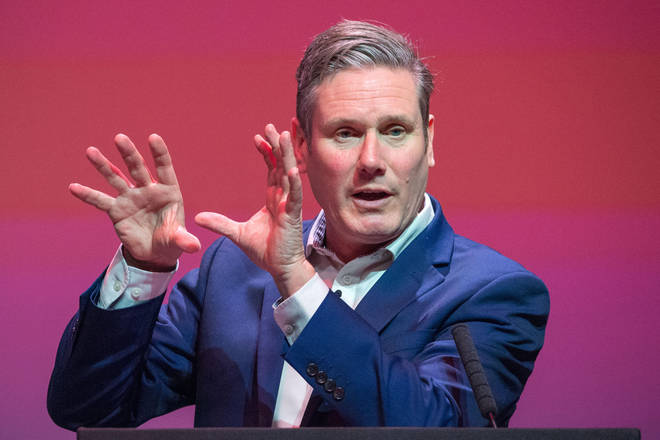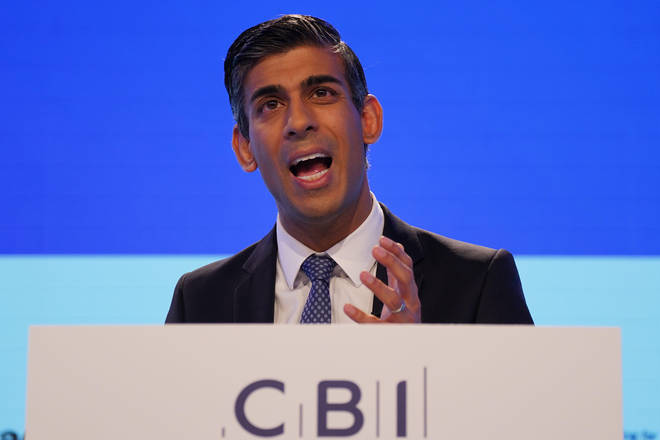UK
SIR Keir Starmer to warn businesses ‘days of low pay and cheap labour must end’
Sir Keir Starmer will warn bosses the days of “low pay and cheap labour” must end as he tells them to train up UK workers to end Britain’s “immigration dependency”.
The Labour leader will signal in a speech on Tuesday that he would be willing to accept increased skilled immigration on the path to his vision of ending the “low pay model”.
Addressing the Confederation of British Industry conference, he is to set out plans to “start investing more in training up workers who are already here”.
Sir Keir will vow to be “pragmatic” about the shortage of workers and not to ignore the need for skilled individuals to come into the country if he forms a Labour government.
But he will stress that any changes to a points-based migration system “will come with new conditions for business”.
“We will expect you to bring forward a clear plan for higher skills and more training, for better pay and conditions, for investment in new technology,” he is expected to tell business leaders gathered in Birmingham.
“But our common goal must be to help the British economy off its immigration dependency. To start investing more in training up workers who are already here.
“Migration is part of our national story – always has been, always will be. And the Labour Party will never diminish the contribution it makes to the economy, to public services, to your businesses and our communities.
“But let me tell you – the days when low pay and cheap labour are part of the British way on growth must end.”
Sir Keir will set out Labour’s plans for reform, which include:
– Ensuring all employers able to sponsor visas are meeting decent standards of pay and conditions
– Speed up visa delays to avoid labour shortages damaging the economy
– Introduce training and plans for improving pay and conditions for roles that require international recruitment
– Reform the migration advisory committee that reports to the Government so it better projects future trends.
He will warn that businesses cannot be “more comfortable hiring people to work in low paid, insecure, sometimes exploitative contracts” rather than investing in new technology to boost productivity.
Sir Keir’s speech comes as Rishi Sunak moved to deny plans ministers could look to realign Britain with EU laws.
Some Tories have been angered by suggestions the Government was weighing up a Swiss-style relationship with Brussels.
But the Prime Minister told the CBI conference on Monday that the UK “will not pursue any relationship with Europe that relies on alignment with EU laws”.
Sir Keir is understood to be sticking to his opposition of rejoining the EU’s single market.
SIR Keir Starmer will warn business chiefs to end 'cheap labour' as Rishi Sunak quashes calls to ease migration laws
22 November 2022,

Keir Starmer will call for an end to Britain's economic dependence on immigration in today's speech to business leaders, hours after Rishi Sunak ruled out any trade relationship with the European Union that relied on Britain aligning with EU laws.
The Labour party's tougher stance on "low pay and cheap labour" will be set out during the opposition leader's speech to the Confederation of British Industry (CBI).
It comes in an attempt to quell rumours that Starmer's vision of a Labour government would take a looser stance on immigration, more closely aligned to those of former Labour leader Tony Blair.
It comes as Labour's plans come under increasing scrutiny after latest poll figures suggest they've opened up a 20-percentage-point lead over the Conservatives ahead of the next election.
It follows Mr 's statement yesterday at the Confederation of Business Industry (CBI), following reports at the weekend that he was seeking a 'swiss-style' deal with the EU.

Read more:
Read more:
Starmer aims to convince voters he has reconciled with life outside the EU in a bid to win back red wall voters.
He will tell business leaders: “I want to be clear here: with my Labour government, any movement in our point-based migration system, whether via the skilled occupation route, or the shortage worker list, will come with new conditions for business.
“We will expect you to bring forward a clear plan for higher skills and more training, for better pay and conditions, for investment in new technology.
Asked yesterday about the UK's relationship with the EU, Mr Sunak said: "Let me be unequivocal about this: under my leadership, the United Kingdom will not pursue any relationship with Europe that relies on alignment with EU laws.
"Now, I voted for . I believe in Brexit and I know that Brexit can deliver and is already delivering enormous benefits and opportunities for the country.
" being an immediate one where we have proper control of our borders."

Mr Starmer is set to tell business leaders: “Our common goal must be to help the British economy off its immigration dependency. To start investing more in training up workers who are already here.”
“Migration is part of our national story – always has been, always will be. And the Labour Party will never diminish the contribution it makes to the economy, to public services, to your businesses and our communities.
Adding: “But let me tell you, the days when low pay and cheap labour are part of the British way on growth must end.”
It comes as Mr Sunak pointed to having "proper control of our borders" during yesterday's speech.
On the subject of migration, the Prime Minister added: "We weren't able to do that inside the European Union, at least now we are in control of it."
But his remarks came shortly after the boss of the CBI, Tony Danker, called on the government to be "practical" on the issue of immigration and use it to solve worker shortages in the UK.

Brexit stopped many foreign workers being able to easily work in the UK and companies are struggling to recruit - especially in industries such as hospitality which has relied heavily on European staff in recent years.
Mr Danker told the conference the UK's labour shortages were "vast", adding: "It's time to be honest - we don't have the people we need, nor do we have the productivity."
In his speech, Mr Sunak said leaving the bloc means "we can open up our country to the world's fastest-growing markets".
He also said the UK could now introduce "regulatory regimes that are fit for the future that ensure that this country can be leaders in those industries that are going to create the jobs and the growth of the future".
A recent poll from YouGov showed the public now think Britain was wrong to leave the EU by 56% to 32%, with one in five who voted for Brexit believing their decision was wrong.
No comments:
Post a Comment